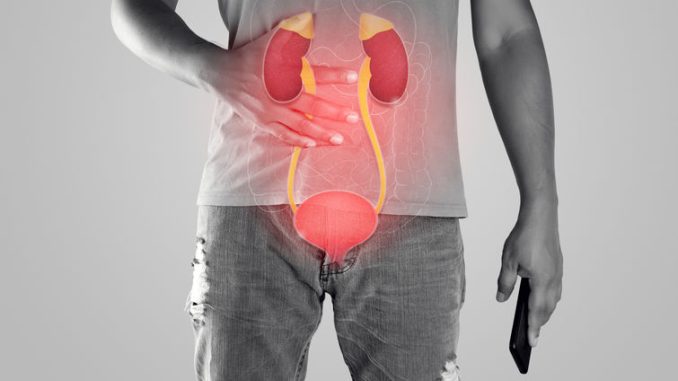
Bladder cancer is a relatively common form of cancer that develops in the tissues of the bladder, the organ responsible for storing urine. While bladder cancer is highly treatable when detected early, it’s essential to recognize the warning signs and seek medical attention if you experience any of them. In this article, we will discuss five warning signs of bladder cancer that should not be ignored.
1. Hematuria (Blood in Urine):
Hematuria, or blood in the urine, is one of the most common and prominent signs of bladder cancer. It may appear as pink, red, or dark brown urine and can be visible to the naked eye or only detectable under a microscope. While hematuria can be caused by various factors, including urinary tract infections and kidney stones, it should always be evaluated by a healthcare professional, especially if it persists or is accompanied by other concerning symptoms.
2. Frequent and Painful Urination:
Persistent and frequent urination, along with a sense of urgency, can be indicative of bladder cancer. This symptom is often accompanied by discomfort or pain during urination. These signs can be mistaken for urinary tract infections (UTIs) or other bladder conditions, making it crucial to seek a medical evaluation for a proper diagnosis.
3. Lower Back Pain or Pelvic Pain:
Bladder cancer can cause pain in the lower back or pelvic region. This discomfort may feel constant or intermittent and can be mild to severe. Many individuals may attribute such pain to muscle strain or other benign causes, but when it persists, it warrants a thorough medical assessment.
4. Changes in Urinary Habits:
Noticeable changes in your urinary habits, such as difficulty in starting or stopping urine flow or a weak urine stream, can be signs of bladder cancer. Additionally, if you experience difficulties emptying your bladder fully or feel the need to urinate frequently at night (nocturia), these changes should not be ignored and should prompt a visit to a healthcare provider.
5. Unexplained Weight Loss:
Unintended weight loss is a nonspecific symptom that can accompany various medical conditions, including bladder cancer. If you experience unexplained weight loss along with any of the other mentioned symptoms, it is essential to consult a healthcare professional for a thorough evaluation.
Risk Factors for Bladder Cancer:
While bladder cancer can affect anyone, certain factors can increase your risk, including:
- Age: Bladder cancer is more common in older adults, with the majority of cases occurring after the age of 55.
- Tobacco Use: Smoking is one of the most significant risk factors for bladder cancer. Smokers are at least three times more likely to develop bladder cancer than non-smokers.
- Occupational Exposure: Some occupations involve exposure to carcinogens, such as those in the chemical, dye, rubber, or leather industries, which may increase the risk of bladder cancer.
- Chronic Bladder Infections: Repeated urinary tract infections and chronic bladder irritation can increase the risk of bladder cancer.
- Family History: A family history of bladder cancer may elevate your risk, suggesting a genetic component.
Conclusion:
Bladder cancer is a highly treatable condition, especially when detected in its early stages. If you experience any of the warning signs mentioned in this article, it is essential to consult a healthcare professional promptly. While these symptoms can sometimes be caused by benign conditions like UTIs, they should not be ignored, as timely diagnosis and treatment can significantly improve outcomes. Regular check-ups with your healthcare provider can also help monitor your urinary health and detect any potential issues early on.
Share this:
- Click to share on Facebook (Opens in new window)
- Click to share on Twitter (Opens in new window)
- Click to share on WhatsApp (Opens in new window)
- Click to share on Reddit (Opens in new window)
- Click to share on Telegram (Opens in new window)
- Click to share on Pinterest (Opens in new window)
- Click to share on LinkedIn (Opens in new window)